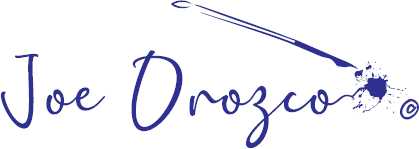Moving Beyond “Either/Or”: The Saving Grace of “And”
Why is there so much polarization in today’s world? That’s a tall question, and I’ve offered at least one stab at emphasizing why it’s so important to educate and think for yourself.
Here we have a deeper dive into breaking out of the traditional construct, brought to you by a pair of thought-provoking guest contributors. It’s a fascinating read, and I encourage you to leave comments with your feedback in support of or against their proposal.
Jean Parker, Ph.D., is an online educator who has lived and worked around the world. She is a global citizen and believes that hope is the key ingredient for reaching individual and collective potential.
Keith Taylor, M.A., is a world-travelled English teacher, currently working in a bilingual high school program in Hungary. He believes in helping people discover how they can make a significant difference in the lives of others.
Interested in writing for my blog? Let me hear from you!
In the meantime, Jean, Keith, over to you!
As our society increasingly engages in dichotomous thinking, we decrease the odds that a bright future is possible. If we are operating in the throes of a dichotomy, the very act of discussion becomes a divisive act by demonizing people with opposite views. This in turn, gets us nowhere but deeper into trouble.
So why do we do it? Remaining in prejudicial thought and action provides a false sense of security and familiarity in times of uncertainty. There is no doubt that we live in uncertain times.
Here is a partial list of common dichotomies in contemporary society:
- Do you prioritize material prosperity or spiritual well-being in your career?
- Do you seek employment that will make money or do you want to do good?
- Does your work have a nonprofit or a for-profit governance structure?
- Do you want to work remotely or go to an office?
- Are you a student or a teacher?
- Do you believe primarily in science or religion?
- Are you a liberal or a conservative?
Factors that contribute to dichotomous thinking include:
- retrenchment thinking (the perceived safety of “Us vs Them”).
- the notion that there have to be winners and losers: a “zero-sum game”.
Here are some “below-the-surface” details that are important to be aware of in order to transcend dichotomous thinking:
- Who is framing your choices?
- Who is benefiting from perpetuating this dichotomy?
- Who is sacrificing for it?
- How does that sacrifice benefit someone else?
- What power are you giving up to someone else by not exploring options?
- Have you investigated the full range of possibilities?
- What nuances and variations are being obscured by the false dichotomy in question?
Dichotomies are strategies of simplicity in a complex world. That said, they miss nuance and variation. This is profoundly destructive, making every aspect of life monochrome.
This, in turn, results in social interactions, policy decisions and beliefs that reflect low-order thinking and its counter-productive natural outcomes. The fact is that false dichotomies don’t provide society with the best ideas. decisions or debate because the framing of questions about what is true, good and beautiful is incomplete.
Instead, let’s learn from the wise elders of the world who have advanced peace, justice and the development of a higher consciousness and an aligned conscience. And let’s also give space to the fresh ideas/energy of youth. Evolving knowledge and wisdom enable us to access our higher selves–that is, our nobility. Dignities ennoble us and our society; let’s keep the dignities and lose the disasters!
For now, here are a few suggestions for the reconciliation of false dichotomies:
- Think of science and religion as stages on a continuum of modes of investigating truth and
understanding the world. - Consider that material prosperity is acceptable provided that any excess is used for the common
good (transforming “I” to “We”). - Consider alternate governance structures like b corps, social enterprise and fair shares. Actively
promote an end to “winners or losers”, moving beyond “Mine” to “Ours”. - Find meaningful work that benefits society or make your current work more meaningful.
Remember this: holding multiple perspectives simultaneously enables flexibility in thinking and imagination. Possibilities abound! What are yours?



